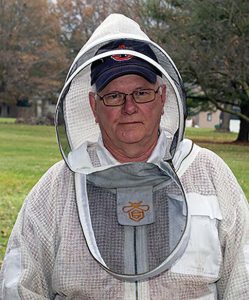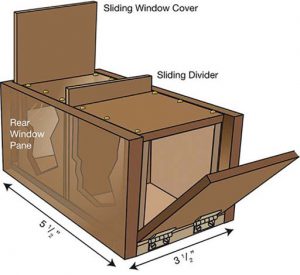Author: Ann Harman
You have your new Bee Culture calendar all ready to hang up. Your New Year’s Eve celebrations are all arranged. You have not yet decided on your personal New Year’s Resolutions yet simply because you are not very good at keeping them much past January anyway. However, you really do want your bees to be healthy throughout the coming year. They need to be able to provide pollination in your vegetable garden, whether it’s a big garden or just a few pots on a deck. Plus, you are hoping the weather cooperates to provide you with a bumper honey crop.
Here’s a way to feel absolutely smug about keeping those pesky Resolutions. Here are 12 resolutions; you could use one per month. Make a copy, cut it up and stick one on each month of your new calendar. In that way you will set a record! Keeping all your Resolutions.
So now it is time to turn off the television and stash your cell phone in a cupboard so you can now make your list of Better Beekeeping Resolutions for the New Year of 2020 (a very convenient number to type or write). Here are some suggestions, just to get you started.
Resolution 1. I will tackle the stored bee equipment as soon as the Christmas tree and all the outdoor lights, and other holiday decorations are taken down and put away for another year. If you have some honey supers stored in plastic trash bags check them carefully. An enterprising mouse can chew through those and make a mess.
This is also a good time to see if any stored equipment needs repair or painting or if it needs to be replaced. It would be wise to see if the equipment suppliers are having good sales. Since this is a quiet time in beekeeping any orders will be shipped promptly unlike during honey flow time.
Resolution 2. I resolve to read something in every issue of Bee Culture this month, and every month. It can be an article to help understand bees or one about varroa or about a piece of equipment. The excuse of “I don’t have time” is OK but only once in a while. There is time if you look for it. If a sports game is more important, keep the magazine handy to read during time-outs and commercials.
You might discover something important if you read only the editorial. A Book Review (they are usually short) could give you an idea for suggesting a birthday present. Look at the advertisements—a new piece of equipment that would really help your honey harvest might appear. It only takes a quick minute to read the list of articles and authors. Choose what you will read first. Being informed about bees and beekeeping leads to being a Better Beekeeper.
Resolution 3. I resolve to read the Christmas present beekeeping book. Well, you asked for it because you thought it would improve your beekeeping skills. It also had the latest information and is well-illustrated. A problem with all beekeeping books is that the information may not exactly fit every climate that exists in this country. Bee work starts earlier in the warm South than in the cold North in Montana. So you will need to adapt the book’s information to your locality. If there is a section on requeening, read it in case you wish to introduce some different lines of queens in your colonies.
If the book was about planting for honey bees and other pollinators it would be nice to share the information with your neighbors. Even if they are not beekeepers, helping all pollinators is a good project for everyone.
Resolution 4. I resolve to have a plan for opening up a hive. Bees know what their tasks are and are busy accomplishing them. Bees function quite well when not disturbed. When your smoker is lit, your hive tool in hand, Stop! Ask yourself “Why am I going to inspect the colony?” Take a moment to review. Am I looking for disease? Am I looking for pollen and nectar stores? Queen performance? Or am I “just looking?” If you cannot think of a good reason, then put out your smoker and go do something else.
Remember, if you are in small hive beetle territory, opening the hive and breaking open the “prisons” will increase egg-laying by the beetles.
If you have a good plan in mind, then go ahead and open the hive. Just disturb the bees as little as possible. If a problem does appear you can decide on your next action. Now you have a perfectly good reason for a return visit for observation or correction of the problem.
Resolution 5. I resolve to keep some sort of records. The “brick method” can be useful for short bits of information. A horizontal brick means “all is well.” An upright brick can mean “this is queenless.” You are the one to create the brick dictionary. Our phones and pads are useful for record keeping but must be protected against fingers sticky with honey, wax and propolis. If your fingers are protected with gloves that are easy to remove and put back on they will help. You need to enter the date and any brief comment to remind you for revisiting a particular hive. Your computer can be one of your record-keeping tools also.
Just remember that keeping records simple and to the point make them useful. If they are too complicated you will not find them useful. You can certainly try the various colony-monitoring programs that are on the market now. Check with some beekeepers using them to find the one most useful to you and your style of beekeeping.
 Resolution 6. I resolve to be a Weather Watcher. It’s not about if you need a raincoat today. It is about rainfall, drought, too hot at the wrong time, too cold at the wrong time. Bees cope with the weather, as they have for millennia. But today you are stewards of your bees and have the responsibility of good living conditions and their food and water supply. We may notice when our tomato plants are wilting in the middle of summer during a dry spell. It is easier to see when the vegetable garden needs watering. Are your bees lacking nectar? Even if your honey crop is reduced your bees need to stay alive until weather conditions improve. Endless rain can also be a problem. Bees cannot forage; nectar is diluted or even washed out of plants. Yes, bees can suffer from unsuitable weather conditions.
Resolution 6. I resolve to be a Weather Watcher. It’s not about if you need a raincoat today. It is about rainfall, drought, too hot at the wrong time, too cold at the wrong time. Bees cope with the weather, as they have for millennia. But today you are stewards of your bees and have the responsibility of good living conditions and their food and water supply. We may notice when our tomato plants are wilting in the middle of summer during a dry spell. It is easier to see when the vegetable garden needs watering. Are your bees lacking nectar? Even if your honey crop is reduced your bees need to stay alive until weather conditions improve. Endless rain can also be a problem. Bees cannot forage; nectar is diluted or even washed out of plants. Yes, bees can suffer from unsuitable weather conditions.
Resolution 7. I resolve to be a Plant Watcher. Your honey crop plants will tell you when to put your honey supers on your hives. The plants are good indicators of weather conditions. However, are you keeping track of bee plants in those 18,000 acres around your beeyard? Farmland use can change from good bee pasture to a field of wheat. Landscaping in city parks can be changed. Go down those roads and streets you never use and find out if the available forage has changed. You may need to change your bee-feeding schedule.
Resolution 8. I resolve to control those pests, varroa and small hive beetle. Review your records (See Resolution 5) to see how your control methods have done. Perhaps the equipment suppliers have something new to offer. If your bees have been healthy and showed no problems, then there may be no need to change. If you decide on a new approach, try it on a few colonies. However, records will be important.
Resolution 9. I resolve to attend local and state association meetings. Speakers from other associations and from research labs will bring new information to help keep beekeepers informed. At large meetings equipment suppliers will be displaying and demonstrating new items. Although beekeepers have differing ideas on bee care, it is worthwhile to share information. Furthermore it is a good idea to help in some way, setting up tables, putting away chairs, or even bringing some refreshments. All associations are better with some participation.
Resolution 10. I resolve to offer to be a mentor to a new beekeeper. You always learn something when you open a hive, either yours or that of another beekeeper. A good mentor does not do the actual work but is there to observe, to guide the newbee, answer questions and point out the colony’s and the queen’s actions. If the queen has died perhaps you can provide a frame with some eggs and young larvae to save the colony. Your local club needs to maintain a list of members who can be mentors. Put your name on that list!
Resolution 11. I resolve to learn about other pollinators and other stinging insects. The winter is a good time to learn about all the other pollinators. Bumble bees and the small solitary bees are in trouble from declining habitat. These bees are necessary for the pollination of crops also. Blueberries, tomatoes and sweet peppers need the “buzz pollination” that honey bees cannot do. Squash bees are needed for good pollination of squash, pumpkins and melons. Beekeepers frequently get calls about “removing those bees” that turn out to be yellowjackets. Understanding the life cycles of other insects gives a more complete picture of what is needed to prevent their decline.
Resolution 12. I resolve to Bee Prepared. Get organized! Equipment needs attention—repair, paint now, before it’s needed. Order supplies before they are needed. Are the honey supers ready for the blossoms?
Do you have a plan for rotating out old comb? If you live in bear or skunk country, is your electric fence working? Do you need to make improvements in the apiary? Bee season will be better with your advance planning.
If you can think of other Resolutions to add, then please do so. After all, your bees are depending on you for their home; their food and water, if needed; and their safety from marauding critters (even though the bees don’t realize it).
Guess what! If you fastened a Resolution to each month on that calendar – and actually followed them – you might be the only person in the whole world who kept all their Resolutions this year! Congratulations!







